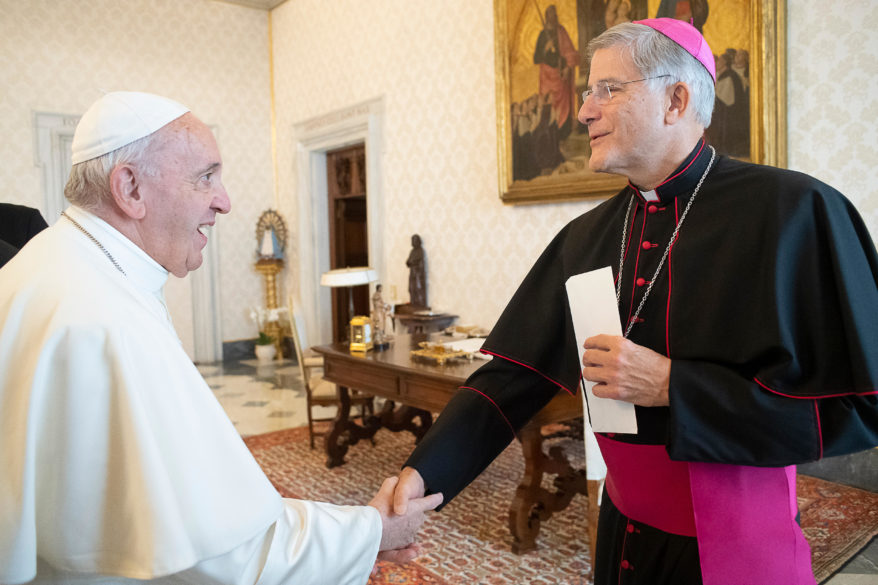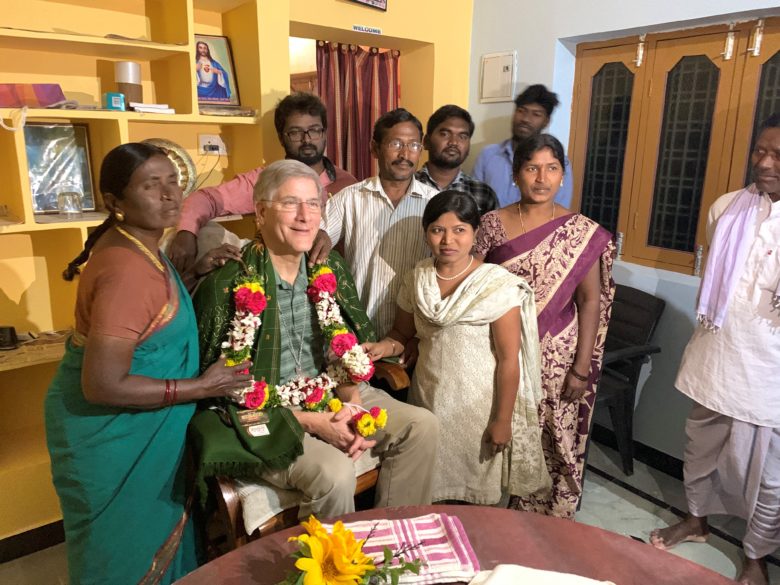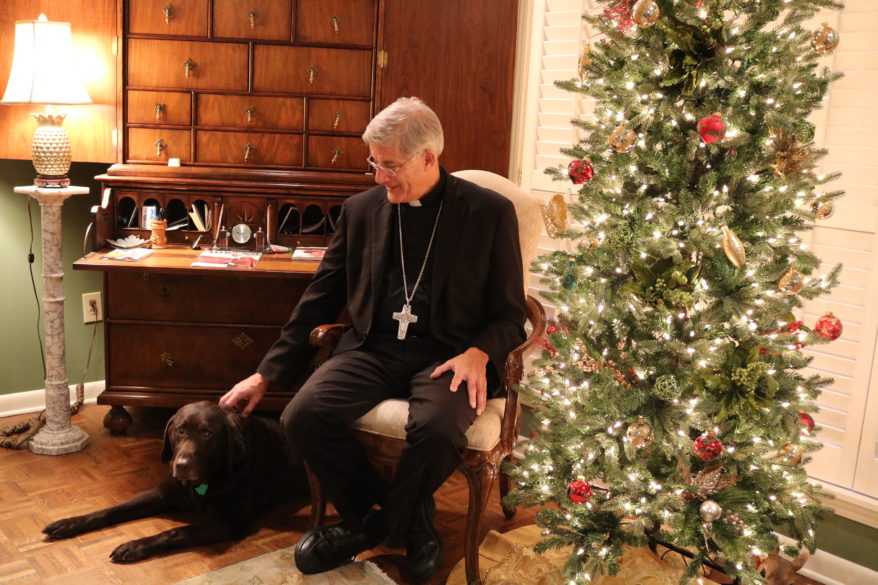Yet, decisions must be made each day, in the church and in the world, to uphold our way of life and cherished traditions, and at the same time to protect the common good.

By Bishop Joseph Kopacz
Over the next nine days the church throughout the world prepares in various ways to celebrate the Solemnity of Pentecost, the outpouring of the Holy Spirit, the culmination of the paschal mystery, the Lord Jesus’ death, resurrection and ascension into heaven.
Like the headwaters of mighty rivers which seem so modest at their point of origin, but in short order cascade into awesome currents of life giving waters, so too the Pentecost experience, modest in scope, 120 gathered in the sacred space of the Upper Room, swelled into saving rivers of grace that continue to empower the church and enliven many in our world. In both instances, consider the far-reaching impact of the Mississippi River and of the universal catholic church.
The Holy Spirit of God, the mind and heart of Jesus Christ, is at one and the same time obvious with the plan of salvation yet shrouded in mystery. We have the advantage of nearly 2,000 years of history to observe what the Lord wants for his people, and what he does not want. Yet, in the present moment we often see things dimly as in a mirror, recalling Jesus’ words that: “The wind blows where it wants. Just as you can hear the wind but can’t tell where it comes from, or where it is going, so it is with everyone born of the Spirit.” (John 3:8)
In the past two and a half months we have called upon the Holy Spirit often to make the right decisions regarding our response to COVID-19. Like the wind, we are not certain where this destructive force came from, nor where it is going, or where it will carry us. Yet, decisions must be made each day, in the church and in the world, to uphold our way of life and cherished traditions, and at the same time to protect the common good. This requires the wisdom of Solomon, so to speak, or far more all-embracing, the gifts of the Holy Spirit. The celebration of Confirmation throughout our diocese has been delayed but the gifts of the Holy Spirit are at our disposal: knowledge, understanding, wisdom, right judgement, courage, piety and fear of the Lord. In our diocese, with these gifts as our guiding principles we have taken steps to avail the faithful of the gifts of the sacraments, most notably the Eucharist via live-streaming, and the Sacrament of Reconciliation. Clusters of ten or less also have gathered in prayer for grave-side services, baptism, marriage and the R.C.I.A.
With much care, we decided to resume the public celebration of Mass in our churches on Pentecost weekend. This timeframe allows for ample time to prepare parish leadership to welcome smaller congregations in order to abide by the recognized ways to contain the virus.
The packet of directives and guidelines is widely disseminated for parish and diocesan leadership to be implemented and adapted to each parish based on seating capacity and the makeup of the congregation.
In the gospel passage last weekend from John, Jesus was preparing his disciples for his withdrawal from their lives, while assuring them that they will not be left powerless, like orphans. He sought to relieve their anxieties with the promise of the gift of the Holy Spirit, fortified them with the gift of peace, and promised them at the Ascension that he would be with them always until the end of time.
Walking by faith, still rattled by doubt and anxiety, they were obedient to the Lord’s instruction to return to Jerusalem and wait in prayer to be clothed with power from on high, the Holy Spirit.
Every generation of Christians, including and especially ourselves in the midst of a once in a century pandemic, can be rattled by doubt and anxiety in our attempts to reconcile God’s promises with the shadows and darkness in our lives and in our world. We do not take these matters lightly.
Before the reception of communion at each Mass, the priest ardently prays: “Deliver us, Lord, from every evil, graciously grant peace in our day, so that by the help of your mercy we may be free from sin and protected from all anxiety as we await the blessed hope and the coming of our Savior, Jesus Christ.”
There is a growing sense that the pandemic will compel us to run a marathon in the time ahead. In which case, along with the gifts of the Holy Spirit, we will also need “the fruit of the Spirit to be centered in God and a blessing for one another: love, joy, peace, patience, kindness, generosity, faithfulness, gentleness and self-control.” (Galatians 5:22-23)
As we look forward to the resumption of the public celebration of Mass on Pentecost, may the Holy Spirit of God illuminate us to sanctify Jesus Christ in our hearts, (1Peter 3:15) to continue to serve one another and the common good of all, and, in all instances, to give God the glory.



